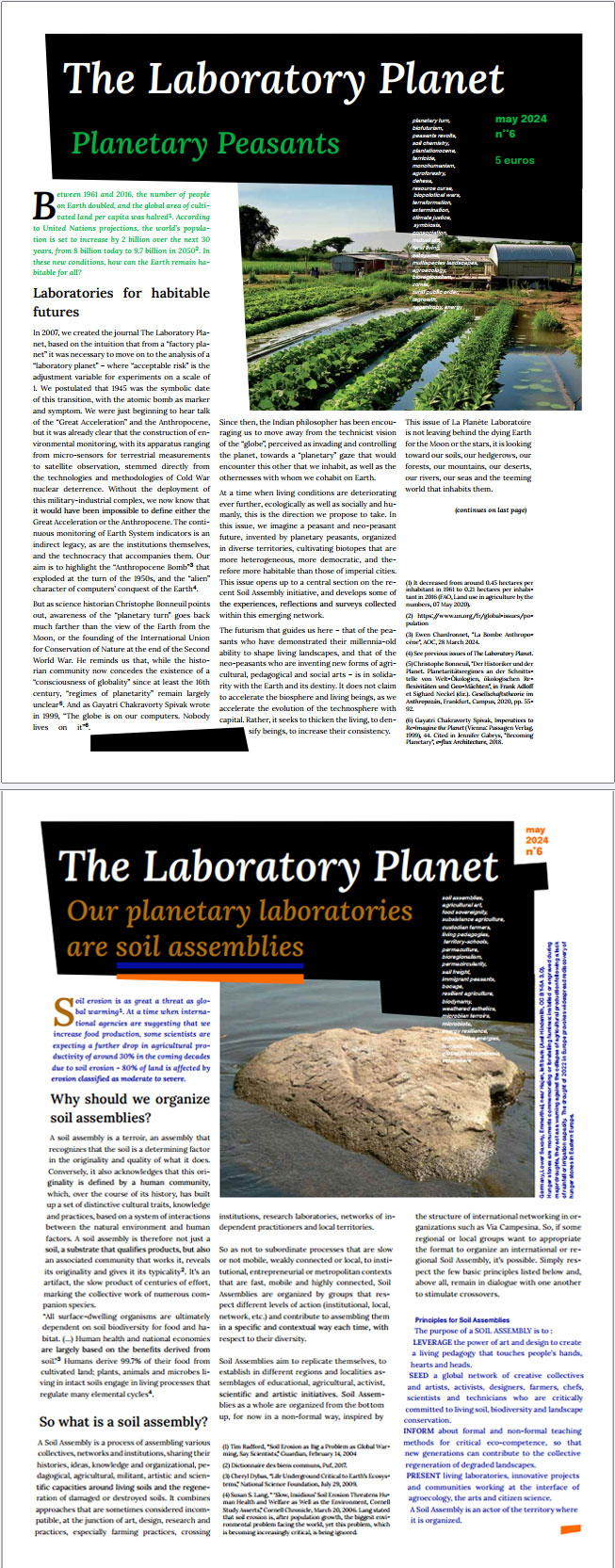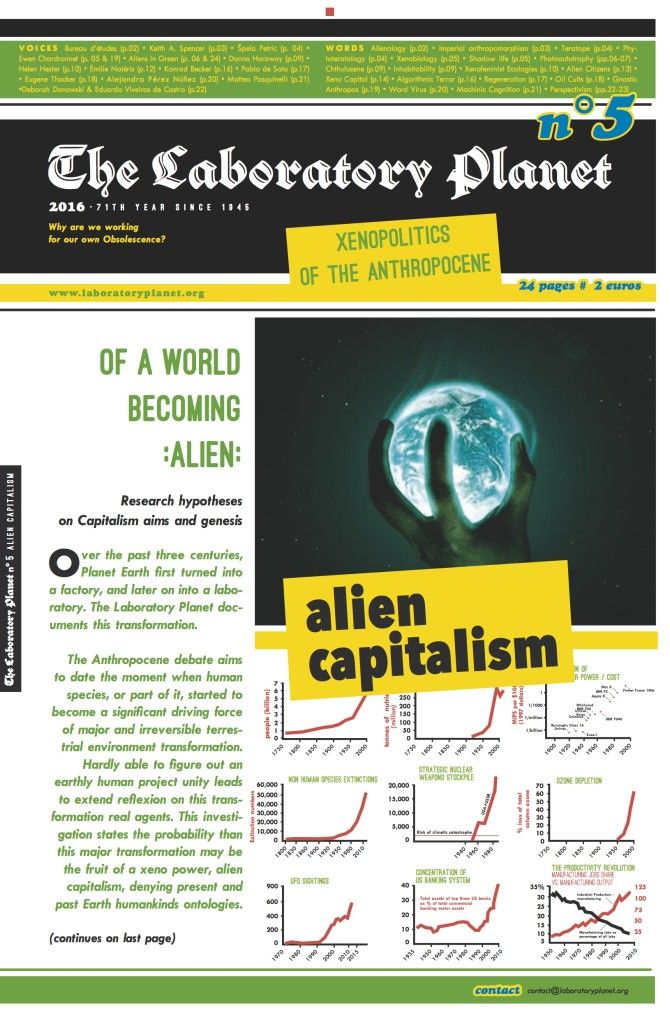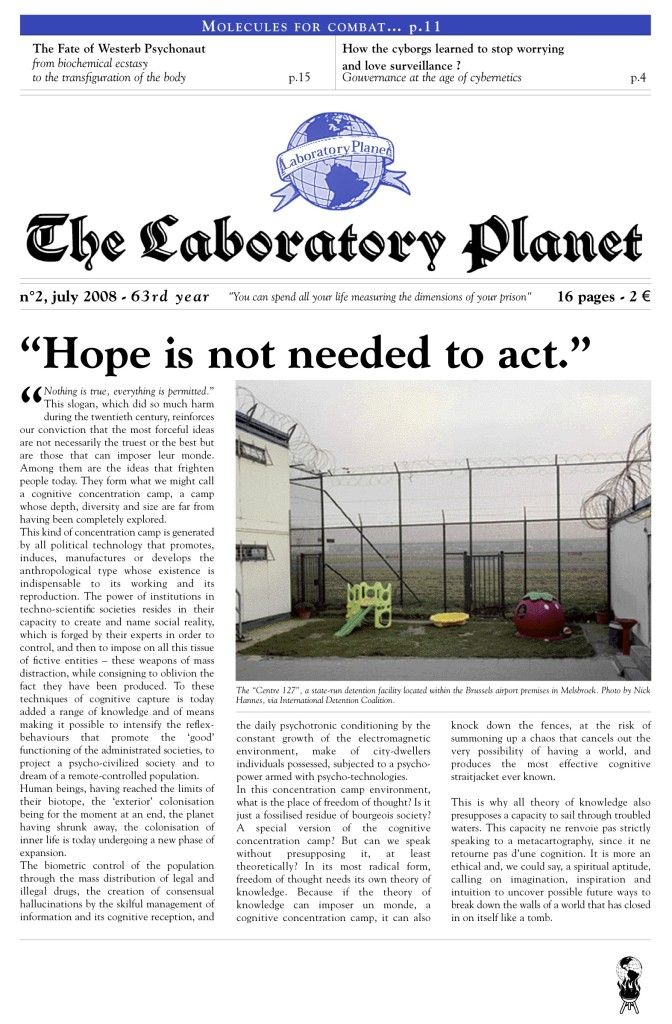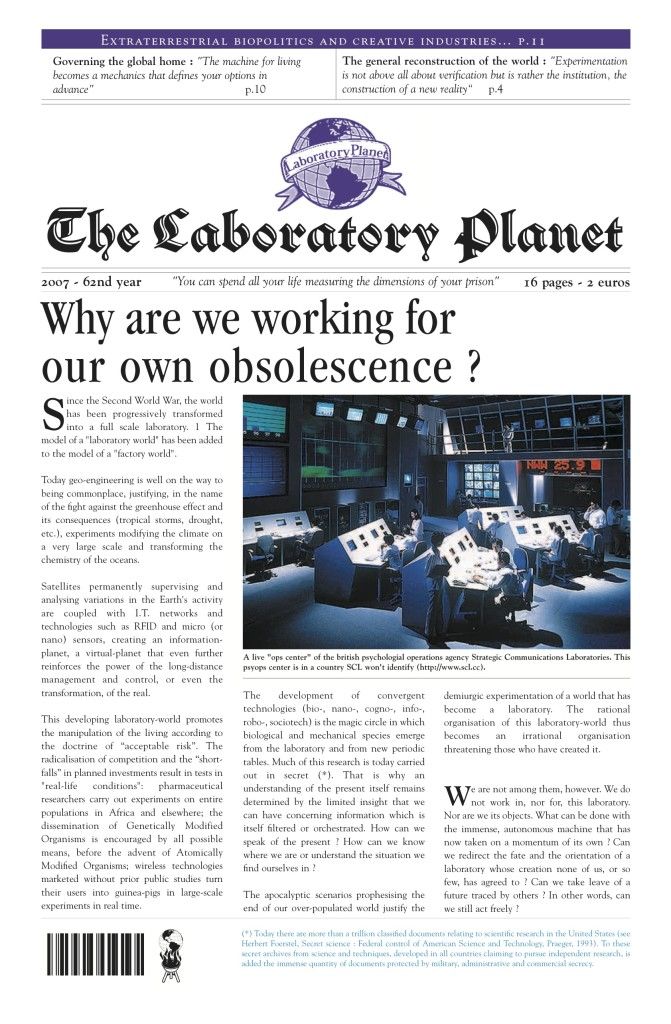We’re delighted to announce the publication of issue no. 6 of The Laboratory Planet
In this issue, we imagine a peasant and neo-peasant future, invented by planetary peasants, organized in diverse territories, cultivating biotopes that are more heterogeneous, more democratic, and therefore more habitable than those of imperial cities. This issue opens with a central section devoted to the recent Soil Assembly initiative , and develops some of the experiences, reflections and surveys gathered within this emerging network.
The “situated” section calling for Soil Assemblies is included in the “planetary” section. The next Soil Assembly will take place in La Chimba, Ecuador, in May 2025.
The newspaper was massively distributed in French from July 17 at the Earth Uprisings Water Village.
The English version was presented from June 17 to 21 in Davos and Zurich as part of the World Biodiversity Forum and the More-Than-Planet exhibition at Awareness in Art.
It was also presented on July 5 at Spore-Initiative in Berlin, to coincide with the launch of the Planetary Peasants program at the Werkleitz festival in Halle and the 500th anniversary of the Peasants’ Revolt in Germany. Further events are planned for 2025.
The English version is distributed within the More-Than-Planet network : Projekt Atol (Ljubljana), Waag Future Labs (Amsterdam), Ars Electronica (Linz, At), as well as Spore-Initiative (Berlin), Bitwäscherei and Awareness in Art (Zurich). From September 4 to 8, it will be distributed at the Platform Europe of the Ars Electronica festival in Linz, Austria
The French version is available at Ferme de La Mhotte (Allier), Rennes (contact us), Antre Peaux (Bourges), La Générale and Atelier 21 (Paris), Kerminy.org and Roscosmoe.org (Finistère).
The Laboratory Planet n°6 • May 2024 • double issue
Planetary Peasants | Soil Assembly
‘PLANETARY’ SECTION • Texts by Alexander Klose, Federico Luisetti, Julian Chollet, Ewen Chardronnet, Pauline Briand (Interview Amitav Ghosh), Leila Chakroun, Richard Loiret, Xavier Fourt, Bureau d’études
‘SOIL ASSEMBLY’ SECTION • Texts by Pedro Soler, « with the fields » collective, Ewen Chardronnet (Interview Vivek Vilasini), Deepanjali Naik, Tim Boykett, Leonore Bonaccini, Bureau d’études, A4, Marina Pirot & Dominique Leroy (n), Marie Preston, Regenerative Energy Communities, Disnovation.org
To help us distribute The Laboratory Planet in your locations or networks, we offer the purchase of one or more reams of 50 copies at 50 euros each (+ postage). The Laboratory Planet is often distributed at exhibitions and festivals, so if you’d like to distribute it in your project or a similar context, don’t hesitate to contact us! For cultural, peasant or activist venues, an indicative price is shown on the front cover: if you wish to sell it locally, the money will be yours to support your local project. Contact us for orders or information at: lab@makery.info
The newspaper The Laboratory Planet was founded in 2007, based on the intuition that it was necessary to shift the focus of analysis from a “factory planet” to a “laboratory planet” – with “acceptable risk” becoming a variable in global experiments. At the time we proposed 1945 as the symbolic date of this transition, with the atomic bomb as both guide and symptom. At the time one was just beginning to hear talk of the “Great Acceleration” and the Anthropocene, but it was already clear that the buildup of environmental monitoring, with its equipment ranging from micro-sensors for terrestrial measurements to satellite observation, came directly from the technologies and methodologies of Cold War nuclear deterrence.
However, as the historian Christophe Bonneuil reminds us, planetary awareness has been around much longer than the photograph of the Earth from the Moon or the founding of the UNESCO International Union for the Conservation of Nature (IUCN) in 1945. Although most historians now recognize the existence of a planetary awareness since at least the 16th century, the mechanisms of globalism remain mainly hidden. As GC Spivak reminded us in 1999, “The globe is in our computers. Nobody lives there.” She calls for abandoning technological globalism, invasive and dominating, in favor of a planetary vision, reaching out to this other that we inhabit and all the others with whom we share planet Earth.
In these times of global crisis it is this planetary vision that we propose to explore, dedicating this edition of Laboratory Planet to peasants and neo-peasants, non-human people and in between people, urban and ancestral laboratories and the chaos of soil itself, mother of all complex life on earth.
Peasants of the world, unite!





